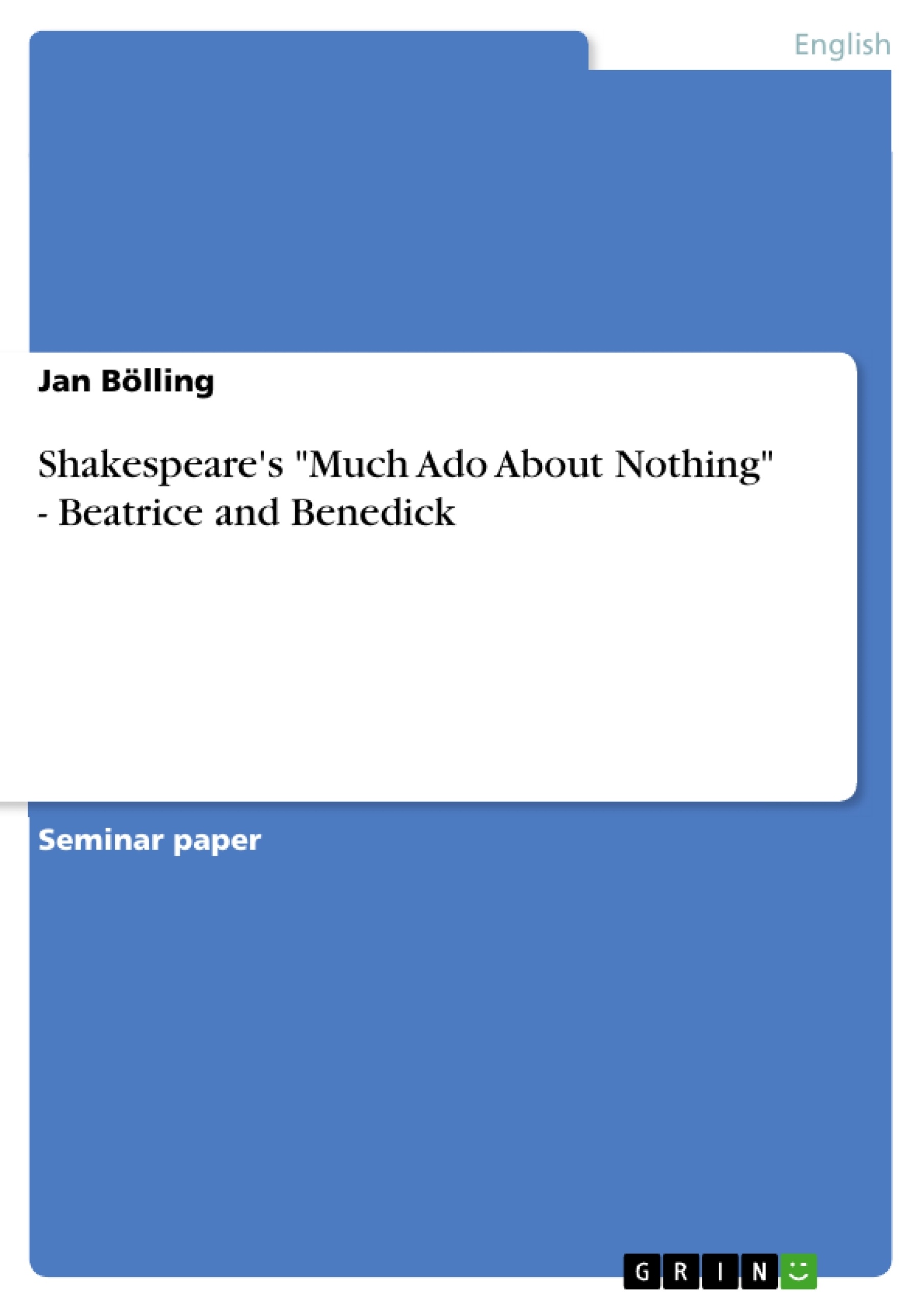...In this paper I focus on two characters of Much Ado About Nothing that represent these elements best, namely Beatrice and Benedick. Although they are not characters of the main plot, which actually is about the relationship between the two lovers Hero and Claudio, their dialogues belong to the most entertaining elements of the play, evoking most of the acting interest. This is also emphasized by the fact that the play was once staged under the title “Beatrice and Benedick” , proving their importance for this play and their popularity.
Table of Contents
- Introduction
- Analysis of Beatrice
- Beatrice's Character and Background
- Beatrice's Views on Marriage
- Beatrice's Relationship with Benedick
- Analysis of Benedick
- Benedick's Character and Background
- Benedick's Views on Love and Marriage
- Benedick's Relationship with Beatrice
- Change of Attitude
- Conclusion
Objectives and Key Themes
This paper examines the relationship between Beatrice and Benedick in Shakespeare's "Much Ado About Nothing," focusing on their evolving attitudes towards love and marriage. The paper explores how their initial playful animosity develops into a deeper affection.
- The dynamics of love and marriage in Shakespearean comedy
- The interplay of wit and wordplay in romantic relationships
- The transformation of characters from antagonism to affection
- The use of deception and manipulation in the pursuit of love
- The significance of social expectations and societal norms in shaping romantic relationships
Chapter Summaries
- Introduction: Introduces the play "Much Ado About Nothing" and the significance of Beatrice and Benedick within the narrative. It highlights their witty dialogues and the play's exploration of themes of love, marriage, and social interaction.
- Analysis of Beatrice: Delves into Beatrice's character, examining her sharp wit, her cynicism towards marriage, and her complex relationship with Benedick. It explores how her behavior is influenced by her social background and her own perceptions of love.
- Analysis of Benedick: Provides a detailed analysis of Benedick's personality, examining his initial skepticism towards love, his interactions with Beatrice, and his eventual transformation from a cynical bachelor to a loving suitor.
- Change of Attitude: Explores the turning point in the relationship between Beatrice and Benedick, focusing on the "trick" played by Hero, Margaret, and Ursula, which prompts Beatrice to re-evaluate her feelings towards Benedick.
Keywords
This paper focuses on the themes of love, marriage, wit, and social interaction in Shakespeare's "Much Ado About Nothing," examining the characters of Beatrice and Benedick, their relationship dynamics, and their evolving perspectives on love and marriage.
- Citation du texte
- Jan Bölling (Auteur), 2005, Shakespeare's "Much Ado About Nothing" - Beatrice and Benedick, Munich, GRIN Verlag, https://www.grin.com/document/86537



